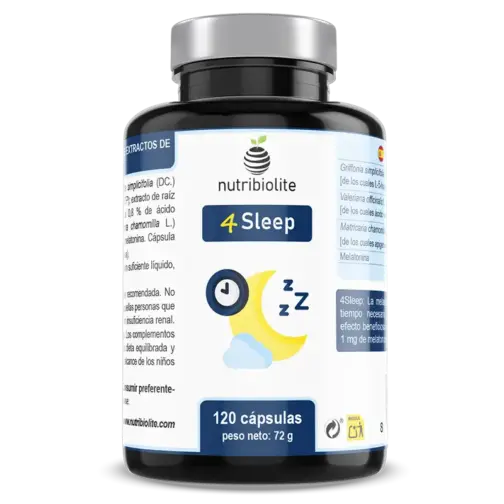A recent clinical trial from the University of East Anglia, published in Food & Function 2025, invites us to look at sleep as a biological art. For four weeks, 52 older adults with sleep difficulties took either a standardised extract of saffron or a placebo daily. The result: those who received saffron experienced a significant improvement […]
A recent clinical trial from the University of East Anglia, published in Food & Function 2025, invites us to look at sleep as a biological art. For four weeks, 52 older adults with sleep difficulties took either a standardised extract of saffron or a placebo daily. The result: those who received saffron experienced a significant improvement in both subjective and objective sleep quality, along with positive changes in their gut microbiota.
What does this mean? That rest is not just a matter of closing your eyes. It is a symphony between mind, body and gut bacteria. This study – partly funded by the saffron industry but independently peer-reviewed – shows that small natural adjustments can influence our nocturnal well-being, especially as we reach our golden years.
Sleep, that secret choreography between brain and gut
Getting a good night’s sleep is more than just adding up the hours: it’s about getting a deep, continuous rest. The study found that after taking standard saffron for four weeks, participants had 21% fewer overall sleep problems, fell asleep earlier (reduced time to effective sleep) and spent fewer minutes awake during the night.
But what was fascinating was the parallel finding: saffron increased certain types of gut bacteria associated with the production of beneficial fatty acids(Faecalibacterium, Roseburia) and reduced others linked to insomnia. These bacteria help regulate key neurotransmitters for the wake-sleep cycle, such as serotonin and GABA.
Taking care of the night starts much earlier: habits to promote rest
There is no instant magic: preparing for a good night’s sleep starts with simple gestures every evening. A light dinner rich in fibre (fruit, vegetables), dim light after sunset and avoiding bright screens are silent allies of the biological clock. At the same time, taking care of the microbiota – with varied food and quiet routines – makes it easier for the brain circuits to train their best night-time version.
The study also reminds us that change is gradual: improvements come when we combine perseverance, patience and respect for internal rhythms.
Melatonin and 5-HTP: physiological allies for more stable nights
Our body produces melatonin in the evening, signalling that it is time to rest. But with age, stress or changing shifts, this production can decrease. This is where key nutrients come in: 5-HTP, naturally present in seeds such as Griffonia, is a direct precursor of serotonin and melatonin; it helps orchestrate that sweet transition to stable sleep.
Providing exogenous melatonin in low doses (1 mg) before bedtime has been endorsed by European authorities to shorten the time it takes to fall asleep without causing dependence or residual effects on waking.
4Sleep: how to accompany your physiology without disrupting it
Sometimes we need a gentle booster that works along the body’s own pathways. 4Sleep combines melatonin 1 mg, plant-based 5-HTP (49 mg), standardised valerian and chamomile; natural ingredients that respect your nocturnal physiology. Its formula supports both the initial phase and maintenance of sleep thanks to its action on neurotransmitters involved in deep relaxation.
It does not replace healthy habits and does not claim to cure illnesses. It only accompanies – like a helping hand – the internal processes already present in your nature.

Melatonin 1 mg and 5-HTP with relaxing plants to facilitate the onset of rest, as a complement to specific nocturnal habits. Responsible use.
Frequently asked questions about sleep and natural rest
How long does it take to notice improvements with habits or supplements?
It is usually progressive. Studies show noticeable changes after about four weeks of consistency in healthy routines or support with formulas such as 4Sleep.
Does melatonin produce dependence or a morning hangover?
Not when used correctly (1 mg before bedtime). It does not cause tolerance or residual drowsiness upon awakening if the recommended dose is respected.
What differentiates 4Sleep from other sleep products?
Its unique combination supports three phases of natural sleep (rapid onset via melatonin, maintenance thanks to 5-HTP and relaxing plants) using only standardised extracts and no synthetic additives.
Can it help me even if I already watch my diet?
Yes, a supplement such as 4Sleep can support physiological processes if you follow healthy habits but experience occasional difficulties in falling or staying asleep.
Is it recommended to take it all the time or only at specific times?
You can use it during periods when you need to readjust your internal rhythm (travel, occasional stress). If you have any personal doubts, always consult your healthcare professional.
This content is informative and does not replace the advice of a health professional.
















